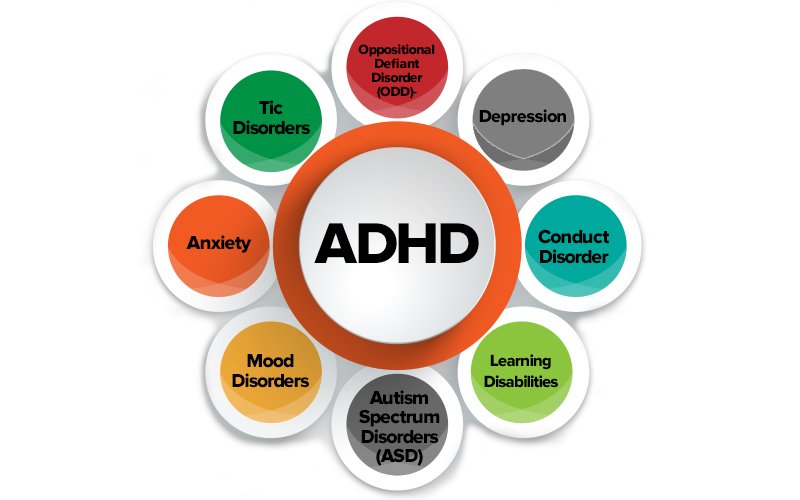Anxiety in the Age of Social Media: Managing Online Stress

In an era dominated by digital connectivity, social media platforms have become integral to our daily lives. While they offer unparalleled opportunities for communication, self-expression, and community building, they also introduce a host of challenges, particularly concerning mental health. Anxiety has emerged as a prominent issue, with many individuals reporting increased stress linked to their online interactions. Understanding the relationship between social media and anxiety is essential for developing effective management strategies.
The Nature of Social Media Anxiety
Social media anxiety stems from various sources, including the pressure to present an idealized version of oneself, the fear of missing out (FOMO), and the constant barrage of notifications. The curated nature of online personas can lead individuals to compare themselves unfavorably to others, sparking feelings of inadequacy and low self-esteem. Studies show that users often experience heightened anxiety when they perceive that their posts are not receiving enough engagement or when they witness others enjoying seemingly perfect lives.
Additionally, the relentless nature of social media can contribute to a feeling of being constantly “on.” With notifications buzzing at all hours, users may find it challenging to disconnect, leading to a cycle of over-engagement that heightens stress and anxiety levels. This connectivity paradox—where being more connected can lead to feeling more isolated—creates a complex relationship with mental health.
The Impact of Comparison Culture
Social media platforms thrive on visual content, showcasing idealized lifestyles, bodies, and achievements. This visual emphasis can lead to an unhealthy comparison culture, where individuals gauge their self-worth based on others’ posts. Research has indicated that this phenomenon can lead to increased anxiety, depression, and feelings of loneliness. Users often fall into the trap of believing that they must meet certain standards to be valued or liked, exacerbating their mental health struggles.
Moreover, the algorithmic nature of social media can create echo chambers, reinforcing negative feelings. When users engage with content that aligns with their insecurities, they may find themselves trapped in a cycle of negative thoughts and behaviors. This can lead to withdrawal from social interactions, further isolating individuals and deepening their anxiety.
FOMO and Its Psychological Effects
Fear of missing out (FOMO) is another significant contributor to social media-induced anxiety. Users are constantly bombarded with images of social gatherings, events, and experiences that they perceive as exciting or fulfilling. This phenomenon can lead to feelings of exclusion and anxiety about one’s social standing. The more one scrolls through carefully curated feeds, the more they may feel that they are not living life to the fullest, contributing to a sense of dissatisfaction and increased stress.
FOMO can also lead to compulsive behaviors, such as over-scheduling social activities or constantly checking social media for updates. This not only affects mental well-being but can also disrupt daily routines and responsibilities, creating a vicious cycle of anxiety and avoidance.
Managing Online Stress
While the challenges posed by social media are significant, there are effective strategies for managing online stress and anxiety. Here are some practical approaches:
Set Boundaries: Establishing specific times for social media use can help mitigate feelings of overwhelm. Consider designating “social media-free” zones in your day, such as during meals or before bedtime. This allows for moments of disconnection, which can be rejuvenating.
Curate Your Feed: Take control of what you see online. Unfollow accounts that contribute to feelings of inadequacy or anxiety and seek out positive, uplifting content that resonates with your values. Surrounding yourself with supportive communities can foster a healthier online experience.
Practice Mindfulness: Mindfulness techniques, such as meditation and deep-breathing exercises, can help center your thoughts and reduce anxiety. By focusing on the present moment, you can lessen the impact of negative online experiences and promote a sense of calm.
Limit Comparisons: Remind yourself that social media often portrays a filtered version of reality. Challenge yourself to recognize when you are engaging in comparison and consciously shift your focus to your own achievements and strengths.
Engage Authentically: Instead of passively scrolling through feeds, engage in meaningful interactions. Comment on posts, share your thoughts, or reach out to friends. Building genuine connections can alleviate feelings of isolation and enhance your sense of belonging.
Seek Professional Help: If anxiety related to social media becomes overwhelming, consider speaking with a mental health professional. Therapy can provide tools and strategies to cope with anxiety, helping you develop a healthier relationship with social media.
Digital Detox: Occasionally disconnecting entirely from social media can be beneficial. A digital detox allows individuals to reset their mental state, reconnect with the real world, and prioritize self-care. Use this time to engage in offline activities that bring you joy and fulfillment.
The Role of Social Media Literacy
In addition to individual strategies, promoting social media literacy is crucial. Understanding the mechanics of social media, including algorithms and content creation, can empower users to navigate these platforms more effectively. Education around the impacts of social media on mental health can foster a more informed user base, leading to healthier interactions and decreased anxiety levels.
Parents, educators, and mental health professionals can play a vital role in fostering this understanding, equipping individuals—especially young people—with the tools to critically engage with social media.
Conclusion
In the age of social media, anxiety has become a pervasive issue, affecting many individuals. However, by recognizing the sources of online stress and implementing effective management strategies, individuals can foster a healthier relationship with social media. Setting boundaries, engaging authentically, and prioritizing mental well-being can create a more positive online experience. As we continue to navigate this digital landscape, it’s essential to remember that social media is a tool meant to enhance our lives, not detract from them. By taking proactive steps, we can mitigate anxiety and harness the power of social media for connection and community.




